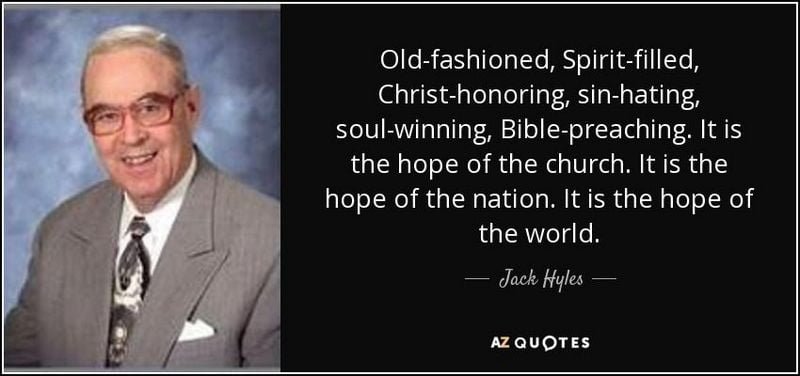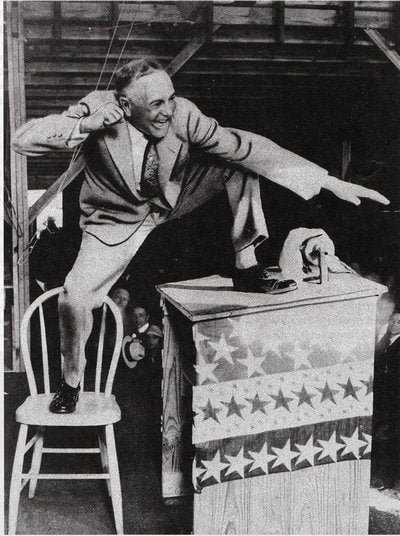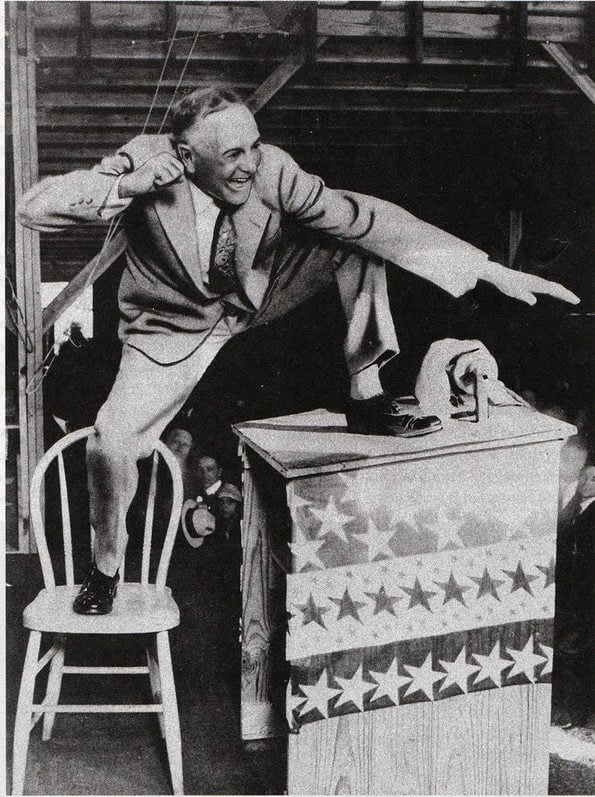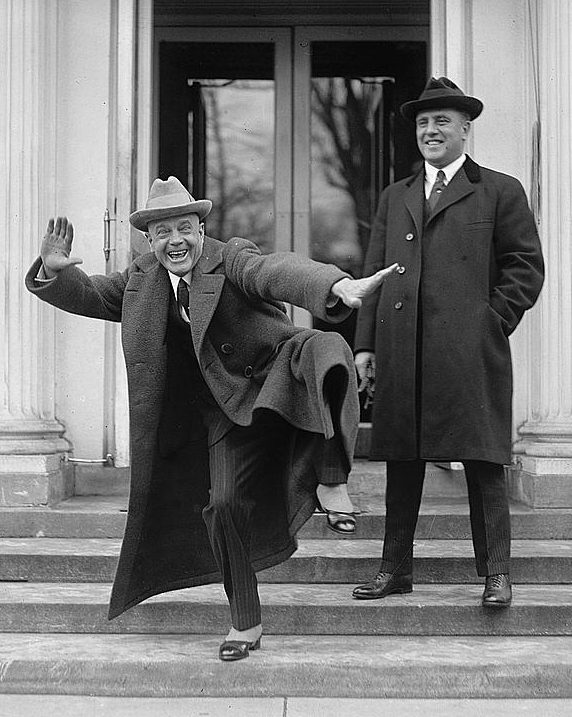
“Old-fashioned” is a word used by Independent Fundamentalist Baptist (IFB) preachers and churches to describe their ministries and preaching. It is not uncommon to hear of IFB churches labeling themselves as “old-fashioned” churches. When asked what they mean by the word “old-fashioned,” IFB preachers will say “our churches are like the first-century churches in the Bible.” Never mind the fact that their churches don’t remotely resemble early Christian churches. IFB preachers see themselves as the keepers of the “faith once delivered to the saints.” (Jude 1:3) They believe that their Baptist theology is the same as that which Jesus, the 12 disciples, and the Apostle Paul preached almost 2,000 years ago. Sound like something straight out of One Flew Over the Cuckoo’s Nest? It is. As anyone who has spent time in “old-fashioned” IFB churches knows, such churches pattern themselves after 1950s Evangelical churches, and not the churches founded by Peter, Timothy, and Paul. There’s nothing in IFB belief and practice that resembles early church practices. N-o-t-h-i-n-g.
IFB pastors frequently say that they are “old-fashioned” preachers, preaching the “old-fashioned” faith. What, exactly, is “old-fashioned” preaching? In what way does it differ from modern preaching? “Old-fashioned” IFB pastors think that “old-fashioned” preaching requires stepping on toes, calling sin sin, and naming names. “Old-fashioned” preaching is also called “hard” preaching. As opposed to what — “soft preaching”; on viagra preaching as opposed to erectile dysfunction preaching?

“Old-fashioned” preaching usually includes theatrics by preachers: loud preaching, shouting, pacing the platform, standing on the pews, pounding the pulpit, running the aisles with Bible raised high, to name a few. Such preaching is quite entertaining, but “old-fashioned?” Hardly. Such preaching styles find their roots in southern revivalism. People attend “old-fashioned” churches because they want to emotionally “feel” God. Thinking that they are “feeling” the Holy Ghost, well-intentioned congregants are blind to the fact that they are being psychologically manipulated by purveyors of “old-fashioned” preaching.
If I stopped writing at this point, most readers would laugh and dismiss “old-fashioned” preaching as a harmless cultural artifact of Christian Fundamentalism. However, many IFB preachers use “old-fashioned” preaching to abuse, manipulate, and control congregants. Imagine sitting in church on Sunday and hearing your pastor preach on the very “sins” you confessed to him during counseling? Or imagine being called out by name from the pulpit? Imagine having to sit in church and silently endure belittling sermons that are used by expert manipulators to control your behavior and that of your fellow church members? I spent decades of my adult life attending IFB churches. Such sermons are common. As an IFB pastor, I preached similar “old-fashioned” sermons. Imagine the poor school teachers who had to endure my sermon on the evil of unions. Or pants-wearing women who had to silently suffer as I lambasted them for their slutty dress. There was no “sin” that couldn’t be turned into a forty-minute, better-wear-steel-toed-boots, “old-fashioned” hellfire and brimstone sermon. I look back on that period of my ministerial career, and all I can say is this: “Bruce, you were a raving lunatic.” And so were my colleagues in the ministry, and the preachers I heard at preacher’s meetings and conferences.
Fortunately, I didn’t remain an “old-fashioned” preacher. In the late 1980s, I realized that what I was supposed to do as a pastor was teach the Bible to congregants and help them in their day-to-day lives. Of course, some of my colleagues thought I had abandoned “old-fashioned” Christianity or had lost my “fire.” Perhaps, but I came to a place in my life where I was content to just teach the Bible and let God do his work as he saw fit. I stopped the pulpit theatrics and abandoned the use of psychologically manipulative sermon illustrations. I also stopped giving altar calls. Granted, my new-found Calvinistic theology drove some of these changes, but the bigger issue for me is that I was tired of beating congregants over the head with the proverbial “sin” stick.
Did you attend an “old-fashioned” church? Did your pastor preach “old-fashioned” sermons? Please leave your “old-fashioned” thoughts in the comment section. 🙂
About Bruce Gerencser
Bruce Gerencser, 62, lives in rural Northwest Ohio with his wife of 41 years. He and his wife have six grown children and twelve grandchildren. Bruce pastored Evangelical churches for twenty-five years in Ohio, Texas, and Michigan. Bruce left the ministry in 2005, and in 2008 he left Christianity. Bruce is now a humanist and an atheist. For more information about Bruce, please read the About page.
Thank you for reading this post. Please share your thoughts in the comment section. If you are a first-time commenter, please read the commenting policy before wowing readers with your words. All first-time comments are moderated. If you would like to contact Bruce directly, please use the contact form to do so.
Donations are always appreciated. Donations on a monthly basis can be made through Patreon. One-time donations can be made through PayPal.


